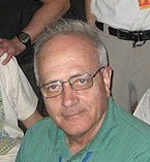IN DEPTH
On the Scientific and Ideological Nature of the Social Sciences

Jaume Botey
The report "Anàlisi dels llibres de text de Ciències Socials des d'una perspectiva de Pau (quart d'ESO, 2008-2011)" (Analysis of social science textbooks from a perspective of peace (fourth-year secondary education 2008-2011) is the first result of the textbook and educational material supervisory committee created by the International Catalan Institute for Peace within the framework of the Law passed by the Catalan government in July 2007.
It is laudable that the highest political authority in Catalonia, its Parliament, wishes to be informed and guide the criteria that should define academic materials. Indeed, although the curriculum as a general guide comes from the Government, the specific preparation leaves a lot of freedom in the hands of publishing companies and authors. Also, the implicit recognition of the nature of education is a political fact.
We only need to repeat one of Freire's most important theories: the historic and political nature of educational reality. And consequently, as well as each polis, each society must be able to debate, decide and create its own societal project, which is a political project, and must also be able to define the educational project that it wants for its young people.
This aspect affects all parts of education: the management model, resources etc. However, it especially affects the values upon which the social sciences are based. Knowledge about the local environment, the region, its riches and possibilities, and knowledge about the past, about races, about the trials and achievements of the group to which we belong, are essential in order to construct a community that wishes to build its future. That is why the social sciences occupy a special place in the transmission of values. This was how it was seen as early as 1857, in the Moyano Law, the first law on education of the Spanish state, when it established that history and geography would form part of the main "corpus" of the subjects that students had to study.
We have therefore analysed how textbooks treat the concept of peace. Peace being understood not only as the absence of war or of physical violence within a military dimension, but peace in its most positive and broadest sense: the peace that springs from justice and from the harmonious human development of a society, regarding social conflict as one of the main causes of structural violence of a society, peace in the political sense of democratic co-existence and respect for human rights, peace from a perspective of gender, peace as a result of considering cultural, ethnical and linguistic diversity as wealth, and peace with nature as a result of respect for the environment and that plans sustainable growth. We studied whether the treatment of each of these aspects fulfil scientific, objective criteria, and are explained with rigour. Working this way, using compared, critical aspects, without sectarianism, already represents an explanation full of values.
The result of the analysis is that, in general, textbooks published in Catalonia are a useful tool in education for peace. Publishers and authors also have to submit to the framework of the curriculum provided by the Ministry of Education and Culture and the Department for Education. This is a major influence, because sometimes the criteria of the curriculum may not match the criteria of authors. For example, in these curriculums there is still an excessive emphasis on chronology, on the positivist historiography model that makes political, economic or military elites the main protagonists of history, or they are predominantly Eurocentric.
Despite these influences, we should stress that in Catalan textbooks
- a. there is a high degree of objectivity, of historiographical rigour and they also contain a commitment to the values of each of the six aspects, removing patriotic or fabled contents. There is no need for superimposed morals. Moral judgements appear in the understanding of what has happened.
- b. there is a noticeable effort to find a balance between the necessary control of chronology and also the necessary explanation of the causes of conflicts, as well as the balance between the interpretation of history from the view of elites and history seen from the bottom, or working classes.
- c. finally, there was also approval of the balance between contents and the educational tool that all manuals should include: pictures, maps, exercises, the use of new technologies etc.
These positive assessments do not hide the critical aspects that were found and that are contained in the report. In order to avoid them in future editions, a series of recommendations was made for each of the aspects of peace that were considered. It would be desirable for both publishers and authors to take them into account.
This report is a small part of the effort that the government should make in order to construct educational materials using reliable, compared criteria. Society in general, businesses, authors, education professionals and the education system as a whole should all provide their criteria. This is a collective process of the creation of mutual understanding, without which our objective will not be reached: education for peace in the broadest context of constructing polis, of creating "citizens".